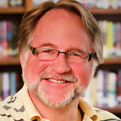Professor of music and director of the jazz program at Richmond, Dr. Michael Davison, invites you to the coming jazz and contemporary combos concert, a part of the free music series at the University of Richmond. The event will be held on Monday, April 15 in Camp Concert Hall at 7:30p.m, and is free!
The Jazz & Contemporary Combos concert is a lot like Richmond weather: wait 10 minutes, and it will change! The semester’s ending concert – April 15, in Camp Concert Hall – will begin at 7:30 and include six different University of Richmond student groups. Charles Arthur will perform and lead his American Roots Ensemble, showcasing the music of Booker T & the MGs, as well as other early American blues pioneers. Charles will also present his Bluegrass Ensemble, pickin’ and grinnin’ through a few rousing renditions of classic American folk songs. Dr. David Esleck leads showcase two jazz combos: The Black & White Band and The Checkerboards. These two groups will perform a mix of swing, bebop and fusion. The Black & White Band will perform Claude Bolling’s Suite for Flute and Jazz Piano. This is a classical work, composed in a jazz style, featuring Katherine Cook on flute. A new addition to the concert this year, will be the UR Post-Fusion Ensemble, led by bass instructor, Randall Pharr. The group will perform post-60s jazz music - jazz mixed with rock, Latin, R&B and funk. Randall will perform bass with this group. Once again, I will perform and lead my student ensemble, the Little Big Band, through a couple of Latin jazz favorites. Don’t miss this concert. It showcases a wide range of talents by many University of Richmond students.
See you on April 15th. Check the weather before you leave home!
_________________________________________________________________________________
Distinguished trumpeter Dr. Michael Davison is a University of Richmond Music Professor and Director of Jazz Ensemble. Davison is a legendary performer, respected professor, published composer, and ethnomusicologist. Davison’s love of music has shaped his life and career. He is in demand across the country as a classical and jazz performer and educator. As a performer, he has given jazz and classical recitals all over the United States as well as in parts of France, the Netherlands, Spain, South Africa, China and Cuba. Davison has recorded four jazz CDs as both a leader and sideman. His classical CD, Fenster, received rave reviews from the International Trumpet Guild Journal. Widely considered an expert in Cuban music, he performs and teaches Cuban music at the University of Richmond and worldwide. As a jazz musician, Davison has performed with the late tenor saxophonist and 11-time Grammy winner, Michael Brecker, popular jazz trombonist, Curtis Fuller and legendary Latin jazz saxophonist and composer, Justo Almario. He has also performed alongside some of Motown’s most iconic singers and groups, including Natalie Cole, Aretha Franklin, the Temptations and The Four Tops. As a classical musician, Davison has performed with Rhythm and Brass, a group that plays everything from Bach to Pink Floyd. He has performed with the Wisconsin and Whitewater Brass Quintets, the Rochester Philharmonic, Wisconsin Symphony, Wisconsin Chamber Orchestra, and the Richmond Symphony. Davison has performed for Pope John II and George Leonard Carey, Archbishop of Canterbury.

